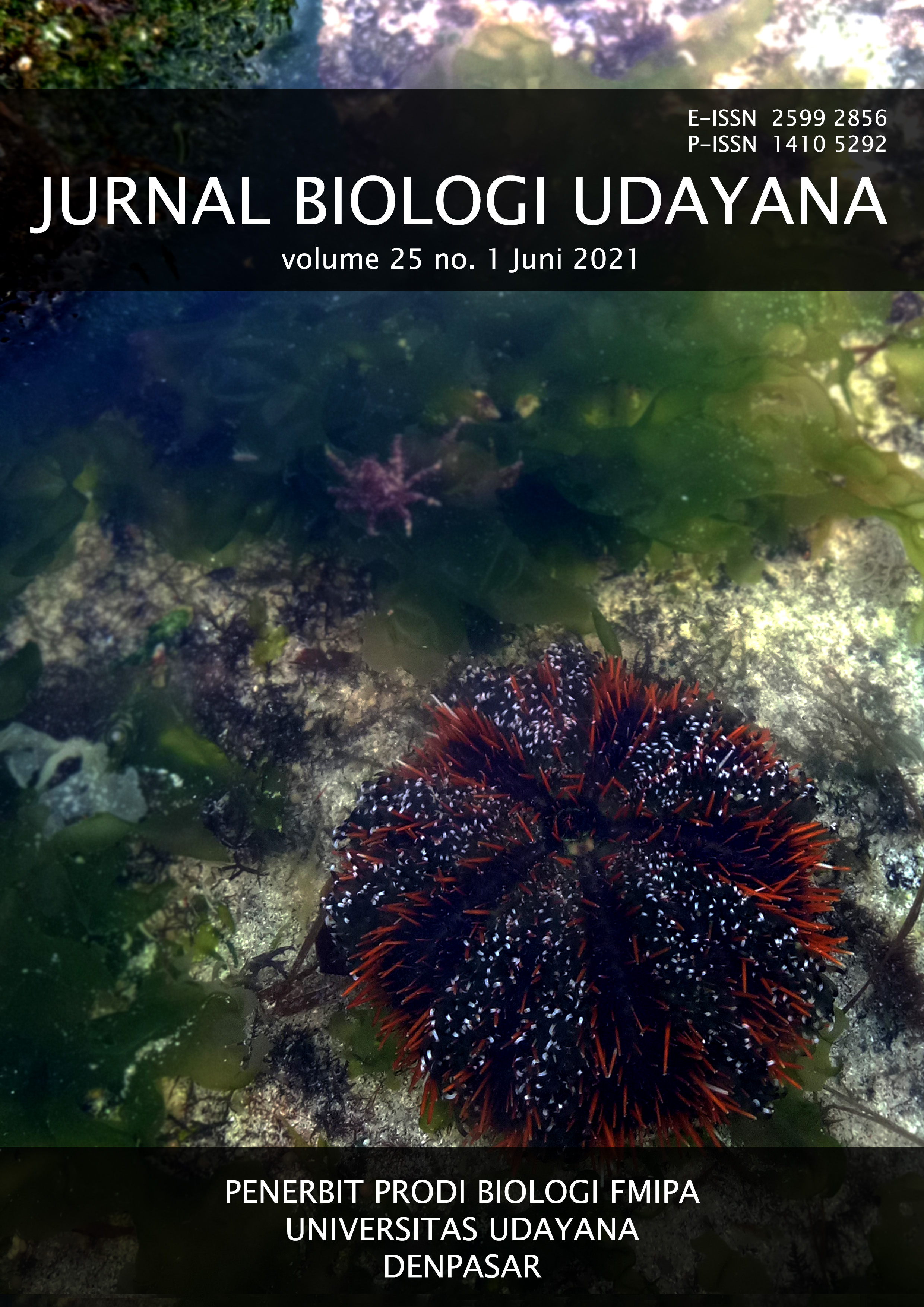Screening of Lampung local rice drought tolerance in germination phase
Abstract
Seed germination is one of the most critical stages in plant growth. Screening at this stage can provide preliminary information on drought tolerance. This study aims to evaluate drought tolerance in local Lampung rice varieties Lumbung Sewu Cantik in the germination phase. This study used a completely randomized design with three concentrations of PEG and three replications. The PEG concentrations given were 0%, 10%, and 15%. The observed data were analyzed for variance at the level a test = 0.05 and further analysis used Duncan's Multiple Range Test (DMRT). The results showed that the higher the PEG concentration, the plumulae length and seminal root length of rice decreased. However, in radicles, PEG 20% did not decrease length growth. Giving PEG 20% also did not decrease the dry weight of the radicles and in the seminal roots, there was no significant difference in weight between PEG 10% and PEG 20%. This indicated that Lumbung Sewu Cantik Padi has the potential to tolerate drought in the germination phase.
Downloads
References
Afa L, Purwoko BS, Junaedi A, Haridjaja O, Dewi IS. 2012. Pendugaan toleransi padi hibrida terhadap kekeringan dengan polyetilen glikol (PEG) 6000. J. Agrivigor. 11: 292-299.
Daksa WR, Ete A, Adrianton. 2014. Identifikasi toleransi kekeringan padi gogo lokal Tanangge pada berbagai larutan PEG. J. Agrotekbis. 2: 114-120.
Faisal S, Mujtaba SM, Asma, Mahboob W. 2019. Polyethylene glycol mediated osmotic stress impacts on growth and biochemical aspects of wheat (Triticum aestiyum L.). J. Crop Sci. Biotechnol 22: 213-223.
Furuya J, Koyama O. 2005. Impacts of climatic change on world agricultural product markets: Estimation of macro yield functions. JARQ 39(2): 121–134.
Hammad SAR, Ali OAM. 2014. Physiological and biochemical studies on drought tolerance of wheat plants by application of amino acids and yeast extract. Ann. Agric. Sci. 59: 133-145.
Henry A, Gowda VRP, Torres RO, McNally KL, Serraj R. 2011. Variation in root system architecture and drought response in rice (Oryza sativa): Phenotyping of the OryzaSNP panel in rainfed lowland fields. Field Crops Res. 120(2): 205–214.
Mambani B, Lal R. 1983. Response of upland rice varieties to drought stress. Plant soil 73:59-72.
Meutia SA, Anwar A, Suliansyah I. 2010. Uji toleransi beberapa genotipe padi lokal (Oryza sativa L.) Sumatera Barat terhadap cekaman kekeringan. Jerami 3: 71-81.
Michel BE, Kaufmann MR. 1973. The osmotic potential of polyethylene glycol 6000. Plant Physiol 51(5): 914-6.
Mirbahar AA, Saeed R, Markhand GS. 2013. Effect of polyethylene glycol-6000 on wheat (Triticum aestivum L.) seed germination. Int. J. Biol. Biotech. 10: 401-405.
Nio SA, Torey P. 2013. Karakter morfologi akar sebagai indikator kekurangan air pada tanaman. Bio Logos 3(1): 31-39.
Palupi ER, Dedywiryanto Y. 2008. Kajian karakter toleransi cekaman kekeringan pada empat genotipe bibit kelapa sawit (Elaeis guineensis Jacq). Bul. Agron. 36(1): 24-32.
Purbajanti ED, Kusmiyati F, Fuskhah E, Rosyida R, Adinurani PG, Vincevica-Gaile Z. 2018. Selection for drought-resistant rice (Oryza sativa L.) using polyethylene glycol. IOP Conference Series: Earth and Environmental Science. The 2nd International Conference on Natural Resources and Life Sciences (NRLS-2018) 23–24 August 2018 Vol. 293.
Rosawanti P. 2015. Respon pertumbuhan kedelai (Glycine max (L.) Merr.) terhadap cekaman kekeringan. Jurnal Daun 2(1): 35-44.
Ryser P. 2006. The mysterious root length. Plant soil 286:1-6
Sawitri S. 2018. Seleksi beberapa genotipe padi sawah lokal (Oryza sativa L.) terhadap cekaman kekeringan menggunakan polyethylene glycol (PEG) pada fase perkecambahan. Jurnal Agroteknologi 9(1): 23-30.
Saha S, Begum HH, Nasrin S. 2019. Effects of drought stress on growth and accumulation of proline in five rice varieties (Oryza Sativa L.). Journal of the Asiatic Society of Bangladesh Science 45(2): 241-247.
Samidjo G. 2017. Eksistensi varietas Padi Lokal pada berbagai ekosistem sawah irigasi: studi di daerah istimewa Yogyakarta. Planta Tropica 5(1): 34-41.
Sinaga R.2008. Keterkaitan nisbah tajuk akar dan efisiensi penggunaan air pada rumput gajah dan rumput raja akibat penurunan ketersediaan air tanah. Jurnal Biologi Sumatera 3(1): 29-35
Verslues PE, Agarwal M, Agarwal SK, Zhu J, Zhu JK. 2006. Methods and concepts in quantifying resistance to drought, salt and freezing, abiotic stresses that affect plant water status. The Plant Journal 45(4): 523–539.
Widyastuti Y, Purwoko BS, Yunus M. 2016. Identifikasi toleransi kekeringan tetua Padi Hibrida pada fase perkecambahan menggunakan polietilen glikol (PEG) 6000. Indonesian Journal of Agronomy 44(3): 235-241.
Widoretno W. 2011. Skrining untuk toleransi terhadap stres Kekeringan pada 36 Varietas Kedelai pada Fase Perkecambahan. Berk Penel Hayati 16:133-142.





